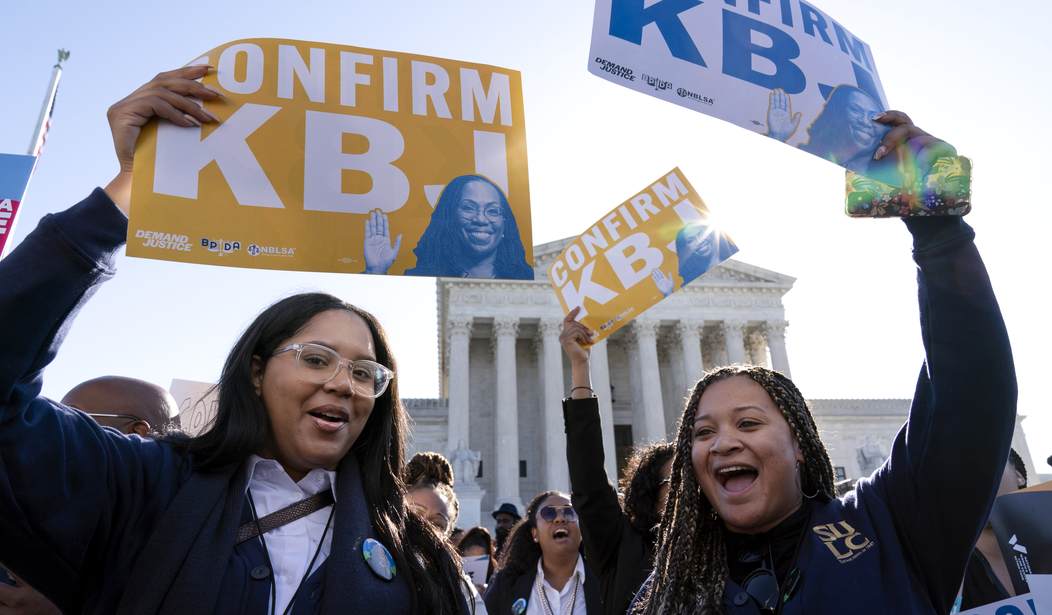Ketanji Brown Jackson’s nomination was arguably tainted long before Justice Stephen Breyer announced his retirement.
“I’m looking forward to making sure there’s a black woman on the Supreme Court to make sure we in fact get everyone represented,” Biden promised during the Democratic primary debate in Charleston, S.C. in February 2020.
Like his commitment to selecting a woman as his running mate, Biden’s promises reeked of social justice gimmickry—tainting his choices as affirmative action picks driven more by identity politics than qualifications—as indeed was the case with his choice of a running mate.
While Kamala Harris has undoubtedly failed to prove her worthiness to be vice president, Ketanji Brown Jackson similarly was unable to prove her worthiness to sit on the highest court in the nation. For starters, she was deliberately unforthcoming about her beliefs and judicial philosophy. The only possible explanation for her unwillingness to go on record with some of the most fundamental questions is that she knows that her worldview does not align with the mainstream of America.
“Judge Jackson tried to dodge questions about constitutional interpretation by claiming that she does not have enough experience,” Senate Minority Leader Mitch McConnell (R-Ky.) noted. “If Judge Jackson fully, truly feels she lacks sufficient experience with constitutional interpretation, then the Senate certainly should not confirm her.”
There were plenty of other reasons not to confirm Jackson. However, we’ve seen the disastrous consequences of the left’s soft-on-crime policies, and Jackson, if confirmed, will bring that soft-on-crime philosophy to our nation’s highest court.
While fentanyl overdoses are now the number one cause of death of adults aged 18 to 45 and have been declared a national emergency, Jackson seemed to justify reducing the sentence of a fentanyl trafficker because there were “no identifiable victims” in the case. In fact, Jackson apologized to the trafficker for initially having to sentence him to 20 years.
Jackson is firmly on the leftist-wacko side of the spectrum regarding the war on terror and has accused the United States of being guilty of war crimes while defending captured terrorists pro bono.
She could not give an acceptable answer for her pattern of giving lenient sentences to child porn offenders—despite having plenty of warning that Republicans would be asking questions on this issue. As I previously noted, Jackson expressed no regret that one offender continued his predatory behavior once released after serving a 3-month sentence that she gave him, despite sentencing guidelines calling for as much as ten years.
She also lied during her hearings by claiming that she didn’t remember that particular case, despite claiming last year that she remembered it “well.”
Jackson also claimed she’s not familiar with critical race theory, despite her history of praising its proponents in lectures and speeches. She also delivered a speech at the University of Chicago in April 2015 during which she said that critical race theory was, in fact, part of her job as a judge.
“[S]entencing is just plain interesting … because it melds together myriad types of law — criminal law … constitutional law, [and] critical race theory …” Jackson said in her speech.
She failed to be candid during her hearings and couldn’t even answer simple questions like providing a definition of a woman. Jackson’s radical record and her efforts to hide it prove that she doesn’t deserve to be confirmed.










